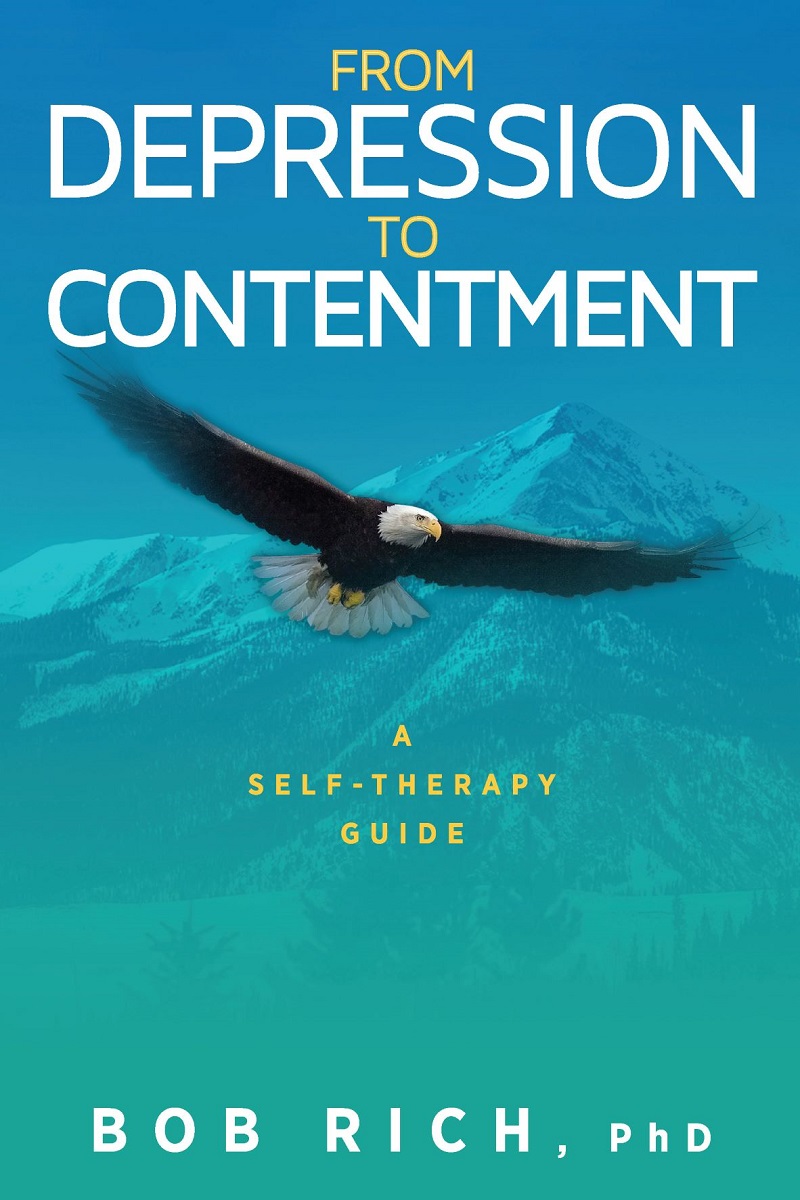Anxiety and Depression
Bob Rich’s Self-Therapy Guide: Satisfying Sleep
Bob Rich’s book From Depression to Contentment: A self-therapy guide is therapy in your pocket. Depression, anxiety, and other forms of suffering are all too common in our crazy world. Bob teaches you how to rise from that to “normal,” which is the walking wounded, then far above that, to inner strength enabling you to cope in any situation.
Like Charles Dickens did with his novels, Bob has converted this book into a series of posts, free on this site, because he wants to be of benefit. In the third post in his series, Bob wrote about how healthy eating really is a matter of life or death and not just in the physical sense. The following is the fourth excerpt from his book and it explains the difference between healthy sleep and that associated with depression.
Satisfying Sleep
As with food, Depression can trick you into either too much or too little. Or it can keep you awake all night, and then you’ll feel sluggish and sleepy all day.
Too little
Do you lie in bed, your mind going around and around, torturing you with thoughts you’d rather not have? Among them will be the thought, I MUST get to sleep! I’ll be so tired tomorrow! Oh, will I never get to sleep? On and on the wicked merry-go-round goes, keeping you awake.
Some facts about the nature of sleep will help. Sleep has several stages, which can be grouped into two: rest, and dream time (called “rapid eye movement” or REM sleep, because when you dream, your eyes visibly move under your closed eyelids). You can’t do without REM sleep. No matter how many hours you spend asleep, if someone wakes you the moment your eyes start moving, you’ll be like the walking dead in the morning. If you put all your REM times together, they’ll amount to about two hours. You’re guaranteed to get that much during an average awful night of disturbed sleep. So, typically, lack of REM sleep isn’t the problem. It is that you haven’t rested at all during your stay in bed.
It actually makes no difference whether you’re awake or asleep for the remainder of the time. As long as your body is relaxed, you’ll be as rested as if you were asleep. In contrast, sleeping while tense doesn’t rest you at all. You can sleep deeply for ten hours and wake tired, if during all that time your body was like a compressed spring.
So, the first aid trick is to learn muscular relaxation. I’ll teach you in the next chapter, because it’s an important tool in its own right.
Then, it is just as restful to lie there, eyes closed, breathing softly, your body completely relaxed, as if you were asleep.
As you breathe in, feel air going in your nose, into your chest, and your tummy rising. As you breathe out focus on tummy going down, air out of your chest, relatively warm air coming out of your nose.
It’s good to fill your mind with a mantra: something you say over and over till it becomes boring, then till it becomes meaningless, and still do it. I use the mantra just as… …restful to remind me of what I’m doing: resting whether I am awake or asleep. That means, you’re concentrating on four things all the time.
The mantra is true. But even if it wasn’t, it would cut through the negative thinking that’s keeping you awake. Get relaxed. Lie there with your eyes closed, breathing softly, and keep saying this mantra to yourself. You’ll soon be asleep. And even if for any reason you’re still awake, you’ll feel rested in the morning.
Too much
Tony was a nice, decent 17-year-old. He and his group of close friends did everything together. Unfortunately, that involved substance abuse. One night, a member of the group murdered his best friend, while out of his mind on marijuana and alcohol. (In some people, marijuana can induce intense terror or rage.)
Tony held the dying boy during his last moments. Months later, he was required to testify against his friend in court. Not surprisingly, he needed counseling.
I asked him how he was affected. He told me that the worst thing was that he couldn’t be bothered to do anything. He took “sickies” from work as an apprentice mechanic, because he couldn’t get up in the morning, had no energy. All he wanted to do was sleep. “What’s the point of doing anything anyway?”
He hadn’t realized that he was in the grip of Depression, a natural aspect of grieving.
He agreed that whenever his grief tried to talk him out of doing something, he’d force himself to do just that. He set his alarm clock for the usual time he needed to rise for work, even on weekends and holidays.
“If you feel too bad to go to work, then maybe you need to stay at home, but still get up at the right time,” I told him. “Then, do all the other preparatory things you do on an ordinary day: have a shower, shave, get dressed, eat breakfast. After that, if you want to, you can undress and return to bed.”
When he did this, he ended up going to work (well, not on weekends and holidays). The first step is always the hardest.
On the days when he defied his grief, he actually felt good, in power, for having done so.
– Dr. Bob Rich





One thought on “Bob Rich’s Self-Therapy Guide: Satisfying Sleep”
Comments are closed.